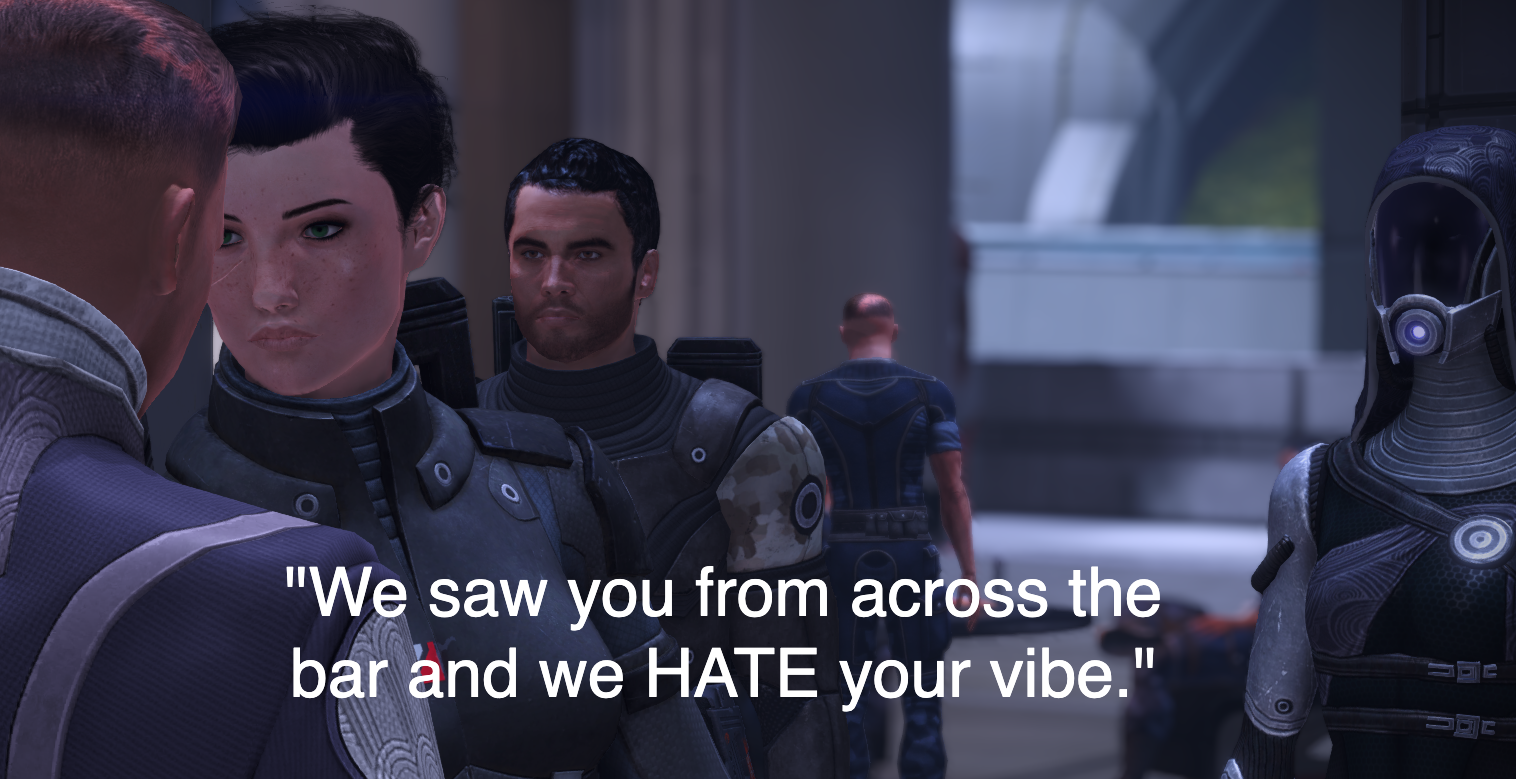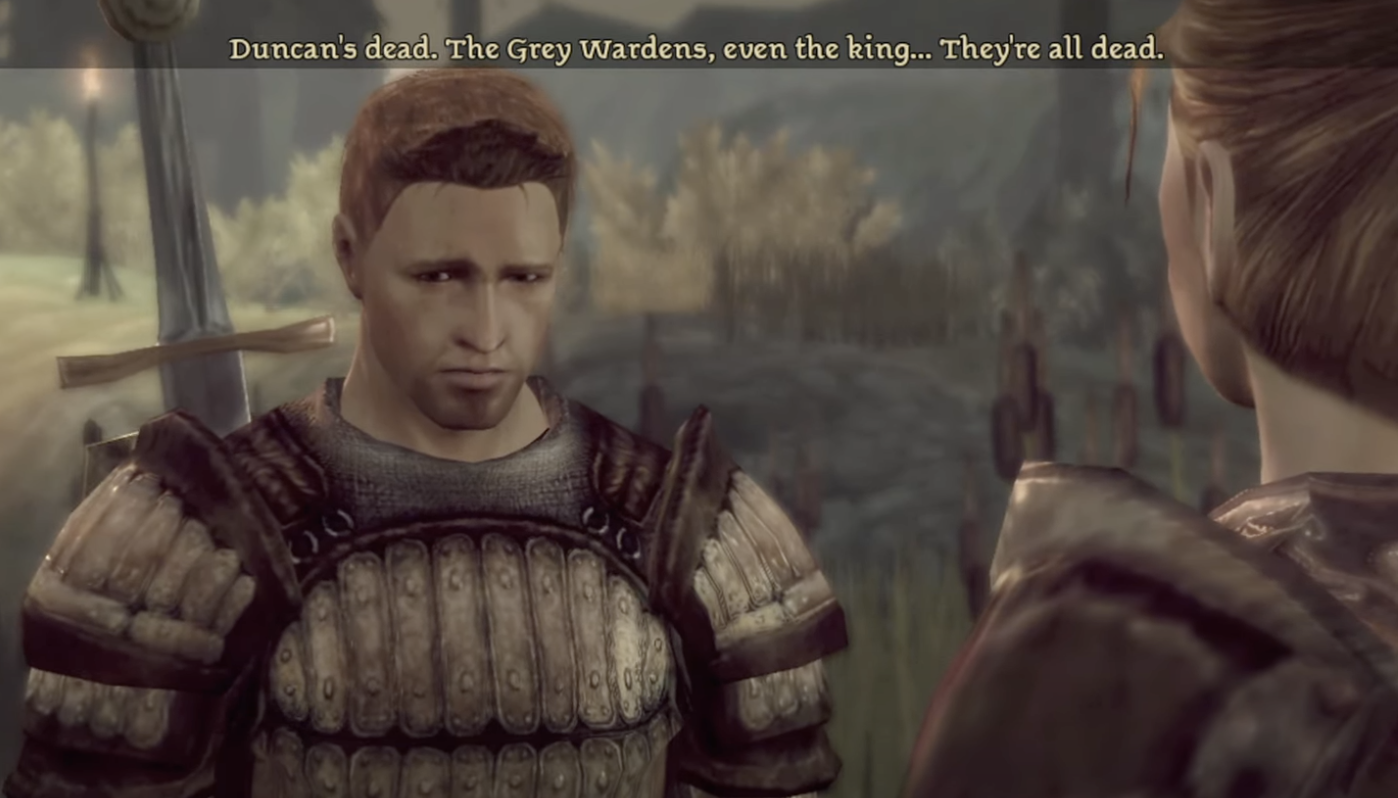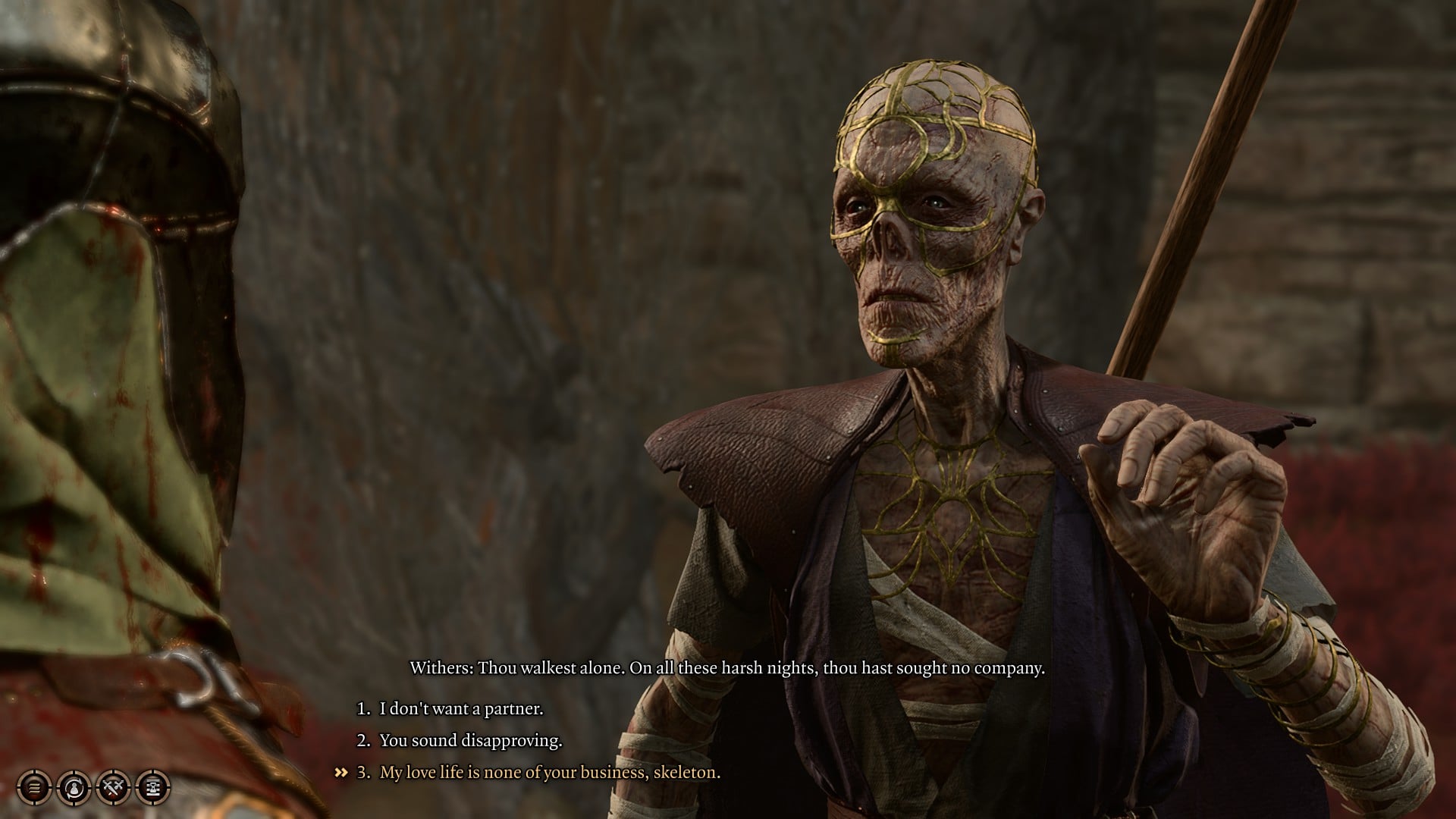Companions
A journey is better together

So many video games provide vast worlds and stories for players to get lost in. Filled to the brim with new experiences and memories we may carry with us for the rest of time. A personal favorite of mine is Bioware's Dragon Age Origins, a roleplaying fantasy game. The game begins with conscripting the player into the Grey Wardens, an order dedicated to fighting demons and expelling them from the kingdom of Ferelden. I was so jazzed when I first played! I had a sword in each hand and an itch to get busy.
My first battle as a Grey Warden went well at first. I was with a newfound companion named Alistair who was both deeply sarcastic but devoted to the cause. He too hungered for action, but we were sent to light a fire and signal another army to charge rather than join the front lines. Alistair complained and I couldn't help but agree. I wanted to be up front! We reluctantly accepted though and the journey to the fire proved to be fraught with danger anyways.
After slaying demons and tackling a particularly large boss demon, we lit the fire. However, the secondary army did not charge and instead left the field entirely.
We were betrayed!
Ferelden's king and our Grey Warden mentor were killed. We were left with nothing but loss. What made this moment all the more powerful was how I shared the loss. I conversed with Alistair after our escape and he was devastated. He didn't know what to do, he was confused. I was confused. Why would that general betray us?

A witch and her daughter had saved us from the battle, and that witch proceeded to give us a sort of pep talk. Though, perhaps it was more talk than pep to say the least. She enlisted her daughter, Morrigan, to help us get answers. Thus began a journey of discovery and revenge riddled with the bickering of my two newfound companions, and boy was it a treat!
Being able to share that journey with them will cement itself in my mind forever. Having someone in that world react so genuinely to something that already felt like a personal betrayal pulled me in further. I wanted to help Alistair. To place my hand on his shoulder and reassure him that we would find this traitor of a general. That we would avenge our mentor. Morrigan, who grew up in the wooded area named the Wilds, was discovering the world with me for the first time. She often voiced opinions on it that either made me laugh or do a double take (perhaps both). Not only could I share my motivation with Alistair, but I also shared my discoveries with Morrigan. Experiences can be best had with company you enjoy and video game companions serve this point in so many ways.
Perspective
One of the biggest things companions can do is show their perspective and in turn, potentially enforce the player's. Take CD Projekt RED's Cyberpunk 2077, for example. It's a cyberpunk roleplaying game and has quite a few companions that come and go based on quests the player is doing. However, there's one that's always with the player from beginning to end, both in the main story and every quest in between: Johnny Silverhand. Johnny is a personality construct stuck inside the player character's head. Think of him as if you had a copy of Mick Jagger in your head but if he was also a complicated domestic terrorist.
Johnny loves to hear himself talk, and thus voices his opinions constantly. At first, he's hostile and snarky to the player, but the player is forced to spend time with him. After all, he can't necessarily go anywhere. Johnny slowly reveals more about himself and his opinions of certain parts of the world. He reacts to events throughout the game as well. In the game's expansion, Phantom Liberty, the player can take an oath to essentially become the in-universe version of a CIA operative. After taking the oath, Johnny will pop up and express that he doesn't approve. Throughout the game, he often expresses his extreme disdain for corporations and the deeply late-stage über capitalism that plagues the world. This time, however, he provides a far deeper reason for his disdain. He reveals that he had fought for the NUSA voluntarily when he was younger and was eager to do so. "Practically dove into the uniform," he says. At that time, they had also required him to take an oath, but now he doesn't remember what the oath was. What did he pledge to? It's not meant to swing the player one way or the other but it's meant to make the player think about their choice.

Being challenged on a belief can do one of two things for a person: it can cause them to double down and reinforce it or begin the process of changing it. Companions are tethers to the world, but also meant to make the player feel valued at the same time. Their choices have consequences and thus have an impact. They feel they matter in the world they are inhabiting by picking up a controller or tapping away at a keyboard. Johnny will do this constantly, whether he agrees with the player's choices or not, causing the world of Cyberpunk 2077 to be so easily habitable.
Relationships
Another way companions can rope a player into the world is by providing attachments in the form of relationships, both platonic and romantic. Bioware is a studio that famously gives players options to romance their companions. In Mass Effect, these relationships form through a lot of shameless flirting along with completing their quest. The player has to invest in them and their story in order to form a romantic relationship, giving the player a reason to get invested in the story in case saving the galaxy from a genocidal alien invasion wasn't enough.
However, there's a philosophy that's begun to take hold of so many games: romance or bust. In my personal experience, I am not immune to the desire to kiss video game characters and rave about it to friends. I often gush about Kaidan in Mass Effect 1 with one of them. We talk about how sweet he is, and how vulnerable he can be in his conversations. Which is so refreshing for a game so centered on the military, something so often depicted with a lot of toxic masculinity and thus devoid of much deep emotional expression. I'm also aware that I have man-brain, which can be oblivious to a lot of other depictions that are less than kind to other genders. So, I spoke to three women in game development: Anna Webster, Mary Kenney, and Marie Bogdanoff.
A game that came up constantly during our discussions was Larian's Baldur's Gate 3. Particularly how it handles consent. The game has a party system, which provides a myriad of companions with different personality types and all of them are kissable. In fact, I have half a mind to believe they want to kiss the player so desperately. The game does not necessarily wait for the player to signal their intent to romance anyone, the companions just flirt with you and fairly early on too. From Shadowheart noting that she prefers a strong, silent type (a silent protagonist perhaps!) to Gale discussing his sex life off the jump. There's an expectation of romance in the game, and companions will make fun of the player for not romancing at all!

Marie and Anna identify as Aromantic and Asexual, and engage with this game differently. Marie said that she often separates herself from characters she creates in games, and thus, when romance gets brought up, feels more content with letting her character engage in it from a roleplaying perspective. Anna on the other hand realized quickly that Baldur's Gate 3 just wasn't for her. She felt that it was a little absurd that this fantastical game lets you play as a tiefling but being asexual was a tad too much for it to grasp. Both Anna and Marie said it was overall alienating and how refreshing it would be for friendship routes to be shown the same degree of care and acceptance as romance. Ideally, some variation of a queer platonic relationship would be a welcome addition. Love is a spectrum, and Baldur's Gate 3 seems to place itself exclusively on one end of it.
I get why it's happening but there are other ways to be close to people that we need to see explored more. It's not about taking away romance, it's about adding in additional things. I also hate when games are like 'you gotta be friends first but you can romance later.' It creates an idea that friendship is like a second class to a character.
- Anna Webster
Even if the player decides to romance, sex is then expected. All romance roads in Baldur's Gate lead to sex. If the player turns off nudity and sex scenes, the sex still happens but instead fades to black. This is the natural progression of romance in the game's mind, which may not match the pace of the player's personal preferences.
One of the companions, Astarion, expresses regret after having sex with the player character. He says that he didn't enjoy it and due to some hefty trauma, he doesn't quite feel like he owns his body quite yet. He loathes physical intimacy as a result. The player can respond in a few ways, but one of the options involves support through a hug. When Mary Kenney described this scene to me, she felt the hug was deeply inappropriate and I couldn't help but agree. After someone confides in you about some deep-rooted trauma and states they would rather not have a relationship consisting of physical touch, you should not reply by violating that boundary. It shows that this character's preference and pace is now secondary to not just the player but what the game views as a successful romantic relationship.
I don’t think the player should find themselves in a kiss, physical touch, or a sex scene without opting into it. This isn’t a “no sex in games” or “always fade to black!” take - I think sex scenes totally have their place. But when those scenes happen without player consent, I think that’s a violation of their agency.
Related to that, I think we need to expand the verbs we offer the player when they 'lock in,' or commit, to a romance. It doesn’t always have to be sex, and if it’s not sex, it shouldn’t just be because the NPC didn’t offer sex. Letting the player say 'no, I’d rather talk' or 'I want to be romantic without sex' gives them further agency over what love means to them and gives them better — and healthier — ways to express themselves.
- Mary Kenney
It's important for us as developers to acknowledge player agency in this way. There are so many kinds of people, and providing a choice matters so much. When crafting a romance in a game such as an RPG where player choices are supposed to be taken seriously, a platonic relationship should be given the same amount of care and value. Consent isn't just a matter of making a game more accessible to different people, it's just common decency towards both the player and the characters who deserve just as much respect.
Better Together
Companions provide so much. They connect players to the world by reacting to player choice and having their own personal goals. They can form relationships with players. They give players a reason to move forward and engage with a story. Over time, they've become more fleshed out and varied, giving way for more representation and thus more players than can connect with the material.
I feel like there has been more emotional depth of characters, and variability. Lots of different types of people with personal goals rather than goals revolving around the player. They're more fully fleshed out than just 'do a b and c then you can get them for the game.' They're having an emotional journey with or without the player.
- Marie Bogdanoff
However, there is always room to grow further. Whether it be in how we showcase relationships or even just design. Companions are windows into a world but also can be mirrors of ourselves. They can challenge us and support us. They're important to a gaming experience. Yet, it's important as a developer or a player to know why they mean so much. Only then can games improve and progress as an art form. As a means of escape. As vehicles for personal growth and core memories. As companions themselves.
Special thanks to Anna Webster (@annacwebs.bsky.social), Mary Kenney (@marykgames.com), and Marie Bogdanoff (@hellohellomarie.bsky.social).